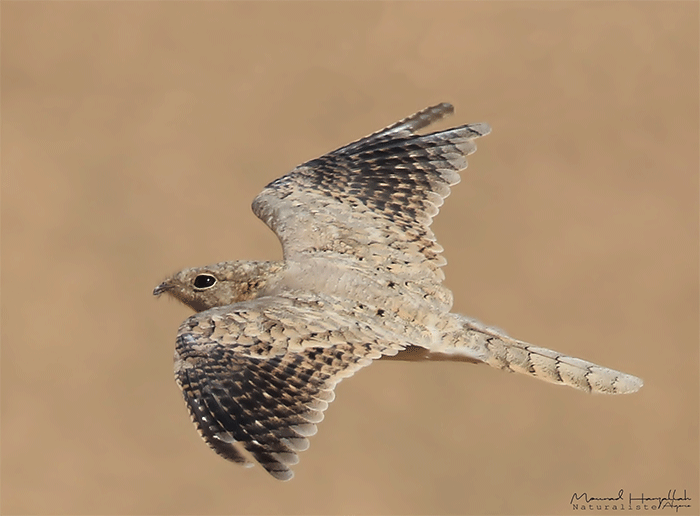Egyptian Nightjars Found to Be Year-Round Residents at the Dead Sea
Tracking study reveals that these cryptic desert birds remain in the region year-round, showing strong fidelity to specific roost sites

Unexpected residency in a desert setting
Egyptian Nightjars (Caprimulgus aegyptius) have long been considered scarce passage migrants in Israel, with breeding only historically recorded along the coastal plain before vanishing in the mid-20th century. However, a newly discovered population in the Judean Desert near the Dead Sea has overturned this assumption. A study led by Yohay Wasserlauf and colleagues has revealed that at least part of this population is resident, persisting in the area year-round despite extreme desert conditions.
GPS tracking across seasons
Researchers fitted five birds (two adults and three juveniles) with GPS tags to monitor their movements over nearly a full annual cycle. Data were successfully retrieved from two adults - a male and a female - with over 1,100 location fixes spanning 271 and 304 days respectively. Both birds stayed within a limited range, never moving more than 15 km from their capture site. Their nightly foraging flights averaged only 2–3 km from their daytime roosts, underlining the sedentary nature of this population.
High fidelity to roost sites
One of the most striking findings was the birds’ repeated use of the same diurnal roost sites. The female concentrated at a single roost area for 82% of the days tracked, returning daily to within 30 m of the same bush for months at a time, in both summer and winter. The male also showed high site fidelity, though with seasonal variation - favouring northern roosts in summer and shifting southwards in winter. Such long-term consistency in roost choice is rare among desert birds and highlights the critical importance of small habitat patches in an extreme environment.
Conservation significance
The study estimates that the Dead Sea population numbers fewer than 100 individuals. Given its small size and reliance on a handful of repeatedly used roosts, the birds may be highly vulnerable to disturbance, land-use change, and the rapid environmental shifts occurring around the Dead Sea. The authors note that roosting aggregations of several nightjars in communal sites make these locations especially important for conservation. Protecting roost areas should therefore be a priority if this unique resident population is to persist.
A puzzle in nightjar ecology
While other populations of Egyptian Nightjars migrate to the Sahel for winter, this study demonstrates that residency is possible where resources are stable. The development of agriculture and retreat of the Dead Sea shoreline may have created new habitat conditions enabling the birds to remain. The findings not only expand knowledge of this elusive species’ ecology but also highlight how rapidly changing desert systems can reshape bird behaviour.
September 2025
Share this story







